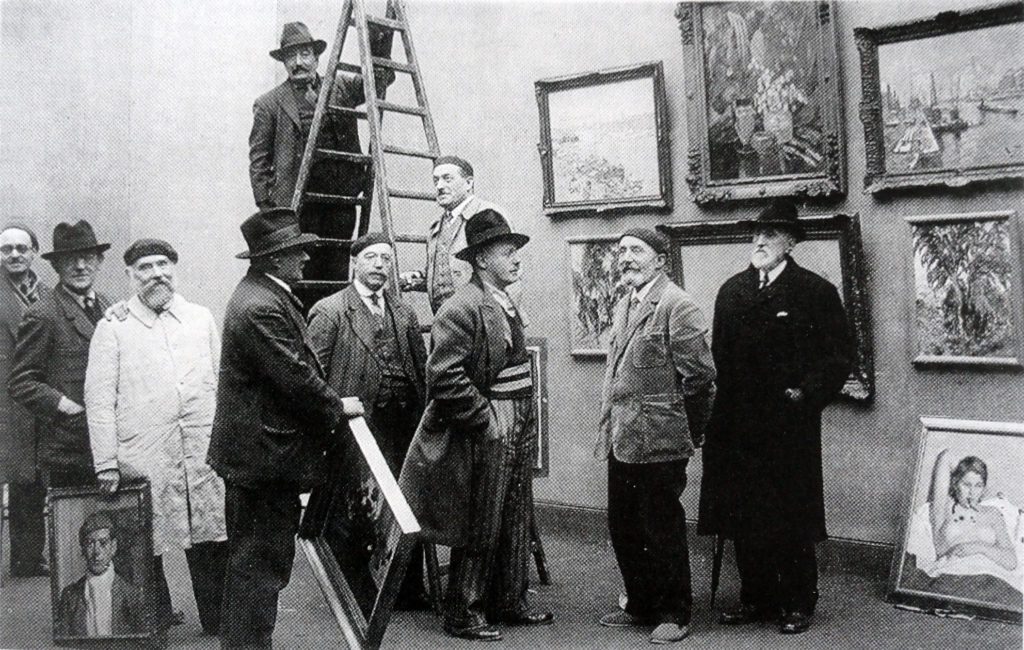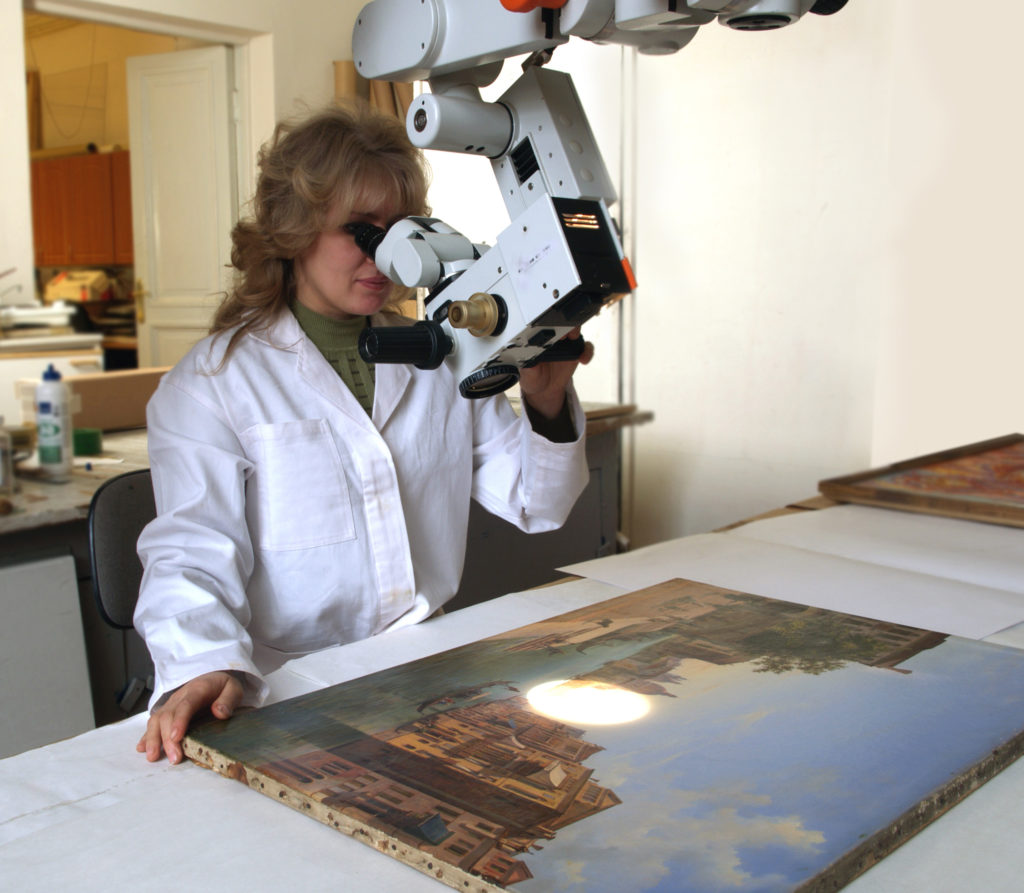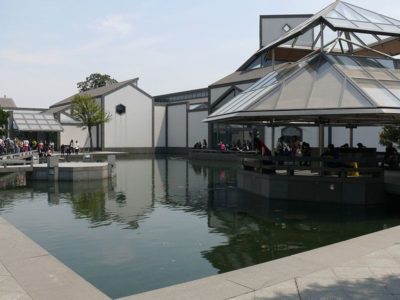When you visit a museum, you interact mostly with tour guides, gallery ambassadors and associates at the front desk and gift shop. The secret to a museum’s success to stay afloat lies behind the gallery walls. Exhibition designers, workers in marketing and communications, publishers, visitor experience employees and more all work to create a diverse environment for the arts. Employees from different departments of major Los Angeles museums give advice to help you score that job or internship in a museum and to explore your inner curiosity of the secrets and hard work hiding behind those exhibition walls.
If you have a passion for the fine arts and cannot picture yourself as an artist, consider mapping a path to work in a museum job.
1. Get your foot in the door

Depending on the position you are looking for, art history won’t show as a requirement for all positions offered. You can have an internship during the completion of your undergraduate or graduate degree. Not all museums and universities fit the elitist stereotype, and they actually welcome all students despite any common misconceptions. “Students working through their classes frequently complete internships as part of their academic programs. In fact, the very concept behind many academic internships is that a student’s concurrent coursework will inform their development within their internship, and vice-versa,” projects administrator at The Getty Molly Nelson said. Museums provide flexible environments for students and make obtaining an undergraduate or graduate education while working a possibility. You should focus on molding your education to your interests.
2. Diversity championed

The patriarch of white males historically dominates museums; the trend of rising diversity of artists aligns with the rising diversity of museum staff. In fact, a growing awareness of the necessity of diversity continuously increases in institutions nationwide. “As a Filipino-American and daughter of immigrants who attended predominantly white schools…I am both personally and professionally motivated to empower individuals who feel silenced—especially those from underserved communities—and help them to amplify their voices,” associate director of academic programs at The Hammer Theresa Sotto said. When researching current museum staff on museum websites, do not let your pessimism get the best of you but rather know YOU can be part of the change.
3. Positions change with time

Understand that museums did not change rapidly since their conception, but slowly and gradually, much like the route to get a career. Museum positions don’t fill directly after graduation. “Museum work is somewhat an old–fashioned kind of apprenticeship. Where you train and venture, learn by observing and practice while you learn. It’s seeking out opportunities that transforms itself into a career,” senior curator of modern art at the Los Angeles County Museum of Art Stephanie Barron said. Your experience determines your position over time. Many museum professionals constantly move around to different museums across the globe for promotions based on their experience.
The ideal candidate shows a balance between education and work experience, and one does not tower over the other. “If I were confronted with someone who was applying for an entry level job, I’d prefer to hire someone who has had some hands-on internship experience than someone straight out of school,” Barron said. Regardless of the education level you have or think about attaining, make the time during your undergraduate education to find volunteer work or an internship. It can boost your chances significantly; a high GPA doesn’t mean much in the real world.
4. Juggle the administrative and creative side

With no required skills to necessarily form a perfect candidate, the rule of thumb for museum internships and employment rely on a balance of skills like Microsoft Office and having knowledge in the arts. The skills universally useful for all departments include effective communication, public speaking, writing, organizational skills and Microsoft expertise. For a museum to sustain itself, daily tasks of meetings, soliciting donors, researching ideas for new exhibitions, budgeting, communicating with donors and so much more require a team with a mix of practical and creative skills.
Keep in mind that the balance works best with administrative roles in museums where you learn something new each day on the job such as if you look to get an internship in communications. “If you are interested in art, it doesn’t have to be formal education. I think with communications and certain departments…you can learn everything on the job,” senior manager of public relations at The Hammer, Nancy Lee said. Openness and interest to learn about art while using skills learned from previous jobs convinces museum administrators to hire.
5. Visit places of your interest

Love Chinese culture, chemistry, cinema, food culture, automobiles, or something else entirely? Most likely a museum out there finds a way to combine your interests with the fine arts. Do not limit yourself, but keep expanding your mindset. Conservation requires both the love of science and art which requires a sharp eye for detail. “To succeed in conservation…Artist’s materials and techniques should fascinate you down to the molecule. Visit many conservation laboratories—in museums and private practice—and get a feel for the type of work they are doing,” conservator at the Getty Museum Julie Wolfe said. Go visit new countries, laboratories, movie theaters, restaurants and car shows. Immerse yourself in everything that captures your attention. At the same time, visit as many museums as you can by making local trips across the county you live in and finding a museum that suits you. Stay current by reading the news, and it will help you to understand contemporary art.
6. The most rewarding aspect: working with actual art objects

As a museum employee you may get to touch, hold and see the objects up close in contradiction to the ‘do not touch’ signs at a museum for the general public. “Working with original works of art, preparing presentations for the public and engaging with the public in those presentations. I care deeply about the intersection of art and the public. I believe that museums play a very powerful role in that intersection,” Barron said. The presence of being in rooms where permanent collections hang daily makes you cherish the art as if part of your own collection. As a curator, the responsibility lies in educating the public eye on new narratives of upcoming artists or themes from the past. A curator serves as a nation’s tastemaker, working to visualize, attract and inspire aesthetic taste.
7. Go to your campus career center

As students, the best place to find out about museum opportunities sits not far from your dorm door: your university campus career center. Tell your career counselor or arts professor about your interest in museums so they can forward you opportunities. If you need further assistance, a career counselor will gladly help you craft a resume and cover letter. “Why do you like a particular one? This may be good information to share in your cover letter for an opening at that organization because it shows you’re aware of their work and you want to contribute to it,” coordinator of curatorial fellowships at the Los Angeles County Museum of Art Hilary Walter said. Define how your skills can benefit an institution and stay well–rounded throughout your job and educational experience. Do not get discouraged if you feel you lack a requirement mentioned on a job description, but bravely apply because you can and will learn on the job.
Museums update their sites regularly, so check museum websites periodically where internships are available. Also don’t forget to check Handshake, the online job and internship forum for universities across the world where museums post opportunities on grants, jobs and internships.
8. Passions over finance

A long-kept secret between museum employees: the aspect of little pay. Regardless of how high a degree you seek to earn, museums do not offer high wages for entry level positions. It takes time to earn a high salary and full-time position, while some small museums might not offer a wage at all. “Museum staff are historically overworked and overtasked, thus the less time current staff have to invest in hiring and training new staff members how to do a particular job,” Nelson said. Keep in mind the literal description of most museums: small, non-profit venues funded largely by donors.
Only so many professionals can earn a full-time position in a museum. “Most museum professionals would say that it can be quite competitive to get one’s foot in the door to their first museum job. However, this can be influenced by a variety of factors,” Nelson said. This shouldn’t discourage you from aiming for your dream position. If the door does not open for you the first time you apply at your ideal museum, keep trying. Work at your second or third choice before bouncing back to your first choice.
9. The deal about masters and PhD degrees

Going to graduate school will not translate to an automatic job acceptance at a museum. However, making the decision to go to graduate school helps with establishing museum contacts, better writing skills and having the chance to make contacts along the way. “A Master’s or a PhD will also help you to establish professional connections that can be very helpful when you apply for museum positions. I know people who have gotten great museum positions without going to graduate school, so it is possible. I am able to do the work I do because of my training in graduate school,” associate curator at the USC Pacific Asia Museum Rebecca Hall said. Graduate school provides help to strengthen research skills and creativity while fostering connections between the past and current art history professionals. The extra schooling provides more time for you to expand on your skill set.
10. Keeping museum staff motivated despite the challenges

Keep your passion for inspiring the public as the key to fulfilling your heart and soul. At the end of the day, all museum positions aim to serve the public. Museums foster educating and entertaining the public with their variety of social, political, historical and aesthetic trends in each exhibition. Museums want their visitors to constantly learn. “My passion is art, and it is a privilege to work at an institution that is committed to collecting, preserving and sharing the artistic legacy of humans across time and geography with our local community and the world,” Walter said. Museums began opening their doors in the 18th century to display art to the public rather than solely the privileged royals. Museum employees keep this tradition alive today on a global scale.

















